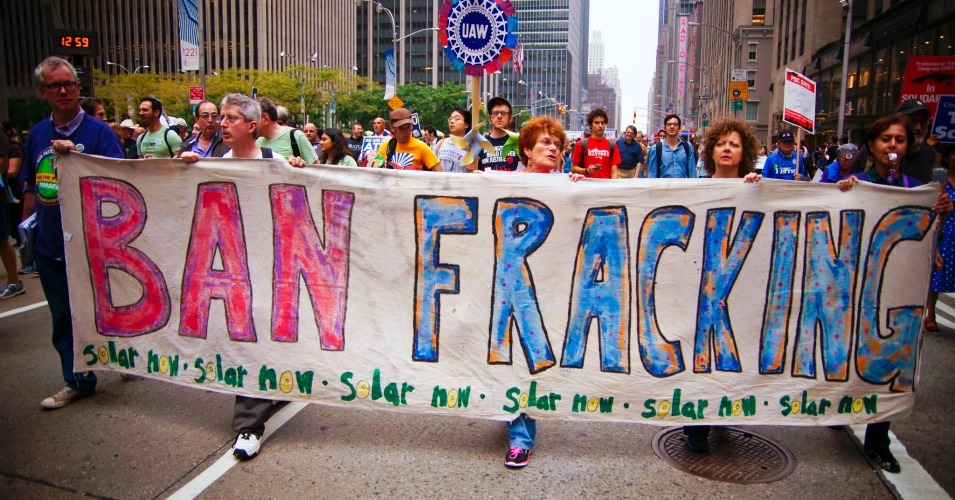Published on Friday, October 18, 2013 by Common Dreams
The by-product of tar sands production already caused outrage in Detroit; now, the dusty menace grows in Chicago
Now toxic mounds of the substance are piling up in Chicago, specifically on the city's southeast side along the Calumet River.
Like the ones in Detroit, Chicago's black piles of petcoke are thanks to the Alberta tar sands and the Koch Brothers, and local residents are sounding the alarm about the coal-like substance's health and environmental impacts.
As Oil Change International explains,
Petcoke is a refining byproduct of tar sands oil, and when burned is substantially dirtier than coal and contributes significantly to greenhouse gas pollution.
The petcoke starts off in a BP refining facility in Whiting, Indiana. Then, the Chicago Tribune reports,
All of the petcoke from Whiting eventually is sent by train, truck or barge to sites on Chicago's Southeast Side owned by KCBX Terminals. The company is controlled by Charles and David Koch, wealthy conservative industrialists who back groups that challenge the science behind climate change and oppose many environmental regulations.
Last year, KCBX bought the larger of the two sites — between 108th and 111th streets on the east side of the Calumet River — from a subsidiary of Detroit-based DTE Energy. As part of the deal, the company obtained exclusive rights to store petcoke from the nearby BP refinery. The other storage site is across the river just south of 100th Street.
The problem is likely to get worse, as BP has plans to triple the amount stored in the city by the end of the year.
Kari Lydersen reports in Midwest Energy News:
Locals say the amount of petcoke has skyrocketed as BP Whiting’s refinery just across the border in Indiana nears completion of a $3.8 billion upgrade to process more tar sands oil. Still in the works is the refinery’s new coker, which will be the second largest in the world and process 102,000 barrels of oil per day, creating petcoke as the tar sands are heated to 900 degrees F.
“It’s growing by leaps and bounds,” said Southeast Environmental Task Force member Tom Shepherd, gazing at the piles from the 106th Street bridge on a recent afternoon. “It’s coming at a breathtaking rate.”
It's not just the locals' perception. The Chicago Tribune continues:
The amount of petcoke generated by Whiting and other U.S. refineries has steadily increased during the past decade as the industry processes more Canadian oil that is thicker and dirtier than many other grades.
BP will produce more than 2.2 million tons of petcoke a year at Whiting, up from about 700,000 tons before the refinery was overhauled to process oil from the tar sands region of Alberta.
Writing in NRDC's Switchboard blog, Henry Henderson asks:
Is this the vision Big Oil has for the cities of the Great Lakes? Is this the transformation that Chicago city officials have in mind when they talk about a revitalized river system and investments in our port—a step back to the worst messes of our town’s industrial past? Make no mistake, this is a problem. And it is one that will be growing quickly as region’s tar sands refinery expansion projects come online.
A report issued this summer from Oil Change International warned that because of the production of petcoke as a result of tar sands refining, the impact of the Keystone XL is much more disastrous for the planet than previously thought, putting a "strong nail in the coffin of any rational argument for the further exploitation of the tar sands."
WTTW has video, which includes shots of a recent dust storm that sent huge clouds of dust from the petcoke into the air:
___________________




I was born and raised in a town just east of Whiting, Indiana. The two towns were separated by a couple of steel mills. The area is on record as being one of the most polluted areas in the country. Now, they are blessed with yet another new source of high-tech generated pollutants.
I certainly can’t think of a better place to be from.